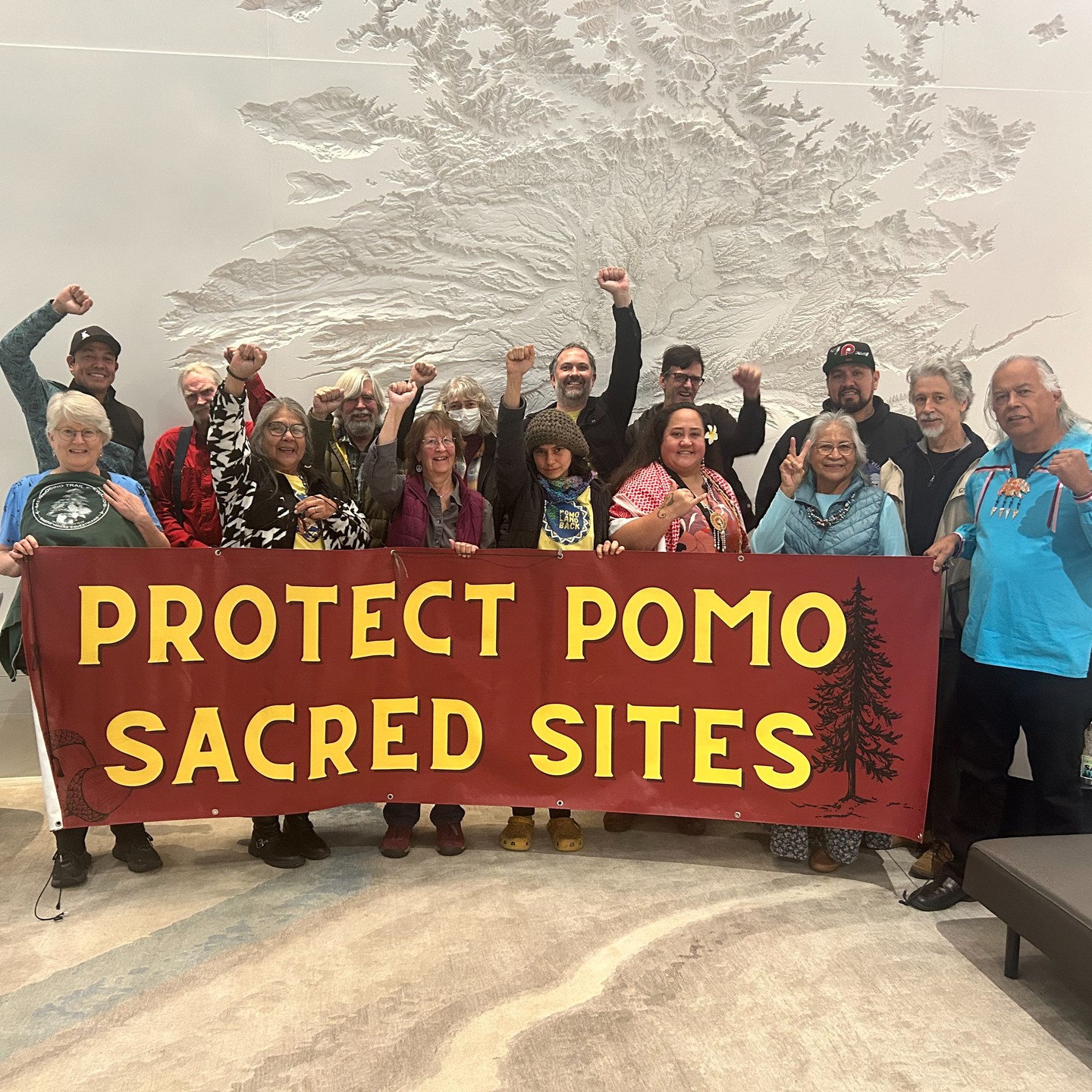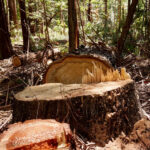Cal Fire is requesting “community insight” for the new Management Plan for Jackson
Demonstration State Forest. Please attend and let Cal Fire know that they are in violation
of California environmental review law and must wait until guidance on tribal co-
management is provided by local Tribes and the California Natural Resources Agency.
Information and registration for these meetings is provided below.
Strong participation is crucial, so mark your calendars and plan to attend as many of these meetings as possible! If you pre-register, you will be sent materials before the meeting date, so this is encouraged.

Talking Points
- The “community outreach” and subsequent drafting of the new Forest
Management Plan (FMP) is in violation of the California Environmental
Quality Act (CEQA). A full EIR is required for this new FMP.
- The new plan will likely have a significant impact on the environment. Cal
Fire has made statements in its New Vision and the scope of work for this
FMP that demonstrates that significant change in management is expected
for JDSF. An EIR is also important because it requires Cal Fire to respond to
comments and questions, which it has not always done in the past, and it
requires CALFIRE to analyze alternatives and mitigation. An EIR ensures that
government-to-government tribal consultation is required as well. Instead of
doing an EIR with a public comment period, Cal Fire is opting for a series of
community outreach events in order to greenwash their process. - The last full EIR, completed in 2007, was relied upon by Cal Fire for the
2016 FMP update. CAL FIRE is relying on this nearly two decades old
environmental analysis for the management plan update. - The Board of Forestry (BoF) erroneously attempted to exempt itself from
CEQA in a 2020 rule change to Title 14 of the California Code of Regulations.
This rule change wrongly categorizes FMPs as merely “information
collection.” (Cal Code Regs. Title 14 § 1153(b)). We don’t want the FMP to
merely collect information, we want it to improve the health of the forest. - Cal Fire has stated they are not planning to do an EIR and will instead have
the BoF find that the plan is exempt from CEQA review. Even if Cal Fire
wanted to rely on the old EIR, changes to the Management Plan have
significant impacts not previously considered in connection with the project
as originally approved. (Friends of the College of San Mateo Gardens v. San
Mateo Community College District, (2016) 1 Cal.5th 937).
2. This process as put forth by Cal Fire is entirely backwards. It should not move
forward until a structure for tribal co-governance agreements is in place.
- There are two key pieces of information that Cal Fire must plan to
incorporate before the Management Plan moves forward. - AB 1284 encourages all Calif. Natural Resources Agency (CNRA) agencies to
develop co-governance agreements with tribes and allows tribes to initiate
government-to-government consultation regarding co-governance and
ancestral land returns. - The CNRA Tribal Stewardship Toolkit is expected to be out for public
comment early 2025, as a guiding document for all co-governance and land
returns in California. - Cal Fire must complete tribal consultation with all interested tribes for co-
management for JDSF before the management plan is drafted. It is
imperative that local tribes are at the table and are given the opportunity
to craft the management plan with Cal Fire. - AB 52 government-to-government consultation and cultural landscape
protections must be incorporated into the new Forest Management Plan. AB 52
was enacted in 2015, after the old FMP was approved and thus has not been fully
incorporated into the management of JDSF.
3. No timber harvest plans (THP)s, road construction, and herbicide use should
occur on JDSF until a tribal/state co-management agreement is approved and
the new Management Plan reflecting Tribal and environmental concerns is in
place.
——————————————–
Some additional language from the Coalition to Save Jackson State Forest petition:
Respect and Protect the ancestral cultural resources of the Northern Pomo and
Coast Yuki Tribes including the entire cultural landscape of Sacred Sites, ancestral
village sites and connecting trails.
Implement protections for JDSF that will conserve it in line with California’s 30 x 30
goal to preserve 30 percent of CA land and coastal waterways by 2030, while still
allowing restoration and Tribal management. The carbon sequestration and storage
potential of coastal redwood forests makes JDSF a top priority for conservation to
help avert climate catastrophe. The forest is also a biodiversity hotspot, home to
many endangered critters and plants, and impaired waterways that must be
protected.
Additional Talking Points on how forest management can be improved to
demonstrate restoration and protection of Sacred Sites and the entire cultural
landscape.
- Protect medicinal plants
- Restore Marbled Murrelet populations in JDSF
- Increase Spotted Owl population in JDSF
- Decommission roads






